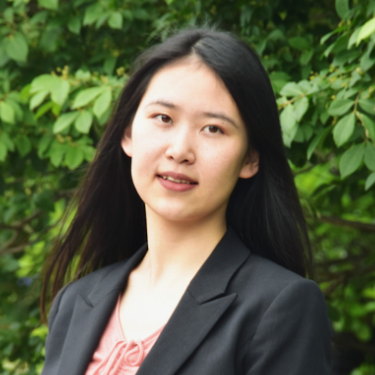Ying Li realized her enthusiasm for public health while participating in a study on Alzheimer’s disease during her undergraduate education. As a result, she became determined to learn biostatistics and devote herself to helping researchers explore diseases’ causes and risk factors and develop new treatments. This passion ultimately brought her to the biostatistics and data science track of the MS in Healthcare Policy and Research program at Weill Cornell Medicine (WCM).
A native of Yunnan, China, Ying was attracted to the New York City program due to its capstone project, comprehensive hands-on training, cohort diversity, and close collaboration with local hospitals and medical centers.
Across the entire program curriculum, Biostatistics II — Regression Analysis, taught by Dr. Jihui Lee, instructor in population health sciences, was Ying’s favorite course. It gave Ying a solid foundation of generalized linear models and survival analysis. Beyond that, she found it fun, well organized, detailed, and informative. Dr. Lee also became one of Ying’s favorite faculty members. “Dr. Lee is very kind, patient, helpful, and cares about students. I enjoyed her class and learning more from her during office hours,” she said. “She builds connections with students and provided me with career advice, encouragement, and recommendations for my path after the program.”
Ying also enjoyed Biostatistics I with R Lab, taught by Dr. Xi Kathy Zhou, associate professor of population health sciences and program director of the biostatistics and data science track; Modern Methods for Causal Inference, taught by Dr. Iván Díaz, assistant professor of population health sciences; and Master’s Project II, taught by Dr. Paul Christos, associate professor of research in population health sciences. Throughout these courses, Ying developed the necessary groundwork for her future career. “We had the chance to analyze real-world data and practice a variety of methods and topics that gave me a deeper understanding of the field,” she said.
Beyond the connections Ying cultivated with the program faculty, her relationships with the cohort were just as impactful. “My classmates came from different backgrounds, so we sometimes saw things from different perspectives,” she said. “This made class discussions very interesting and helped me realize some details I had previously been missing.”
Looking forward, Ying hopes to serve as a biostatistician at medical research organizations, utilizing the knowledge and skills she learned in the program to provide statistical support for a broad range of medical research projects. She is well on her way, thanks to the resources at WCM, including career services and alumni talks. “One-on-one career coaching sessions with Miriam Miller, discussing my future and professional development, really made a difference,” she said. Ying recommends the program to prospective students hoping to advance their careers in healthcare.


